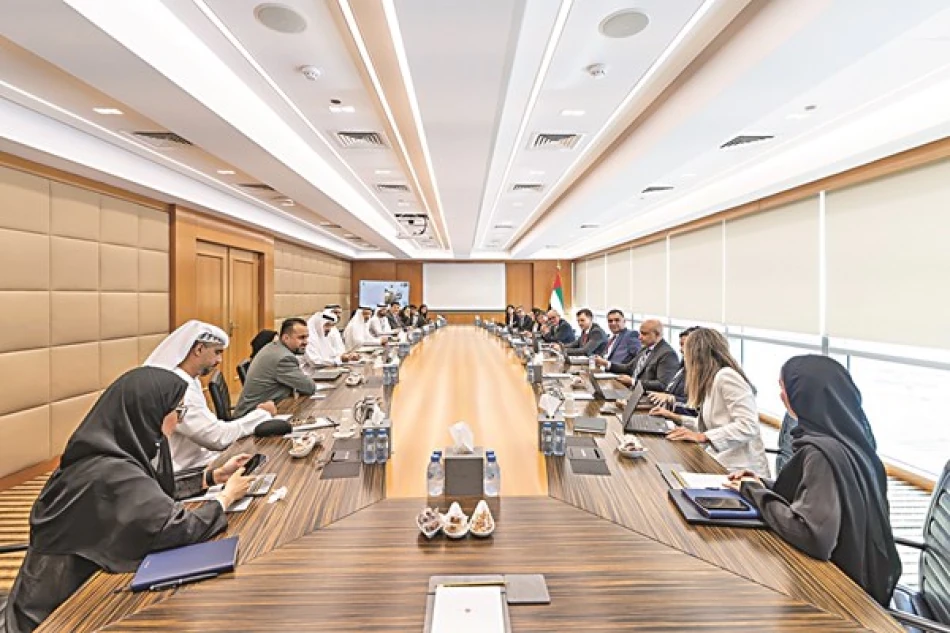
Finance Ministry Explores Enhanced Collaboration with IMF to Bolster Economic Stability
UAE Courts IMF Validation as It Positions for Post-Oil Economic Leadership
The UAE's Ministry of Finance hosted International Monetary Fund officials in Abu Dhabi this week for Article IV consultations, signaling the nation's commitment to international financial standards as it seeks to cement its status as a global economic hub. The high-level discussions covered macroeconomic performance, banking sector health, and policy frameworks—areas critical to maintaining investor confidence amid regional uncertainties and the global shift toward sustainable finance.
Strategic Timing for Economic Diplomacy
The September 17 to October 1 IMF mission comes at a pivotal moment for the UAE economy. With oil prices stabilizing and the country's ambitious Vision 2071 agenda targeting economic diversification, these consultations serve as both a health check and a credibility boost for international markets. The presence of senior IMF officials, including Mission Chief Said Bakhache and Senior Economist Koralai Kirabaeva, underscores the fund's recognition of the UAE's growing economic significance.
Younes Haji Al Khoori, Undersecretary of the Ministry of Finance, framed the meetings as evidence of a "strategic partnership" with the IMF, emphasizing the UAE's commitment to adopting global best practices in financial governance. This language suggests the UAE is positioning itself not just as a regional power, but as a jurisdiction that meets international institutional standards—a crucial factor for sovereign wealth funds and multinational corporations making long-term investment decisions.
Lessons from Singapore's Playbook
The UAE's approach mirrors Singapore's successful strategy of courting international financial institutions to build credibility and attract capital. Like Singapore in the 1990s, the UAE is leveraging regulatory alignment and transparency commitments to differentiate itself from regional competitors. This is particularly important as Saudi Arabia's NEOM project and Qatar's World Cup infrastructure investments create intensifying competition for foreign direct investment in the Gulf.
The emphasis on "balanced and inclusive growth" in official statements suggests the UAE is aware that its economic model must evolve beyond traditional oil-and-real-estate wealth creation. The IMF's focus on financial sector resilience likely reflects lessons learned from the 2008 Dubai debt crisis, when overleveraged property development and opaque government finances spooked international markets.
Market Implications and Investor Confidence
For institutional investors, these IMF consultations represent a form of third-party validation that could influence sovereign credit ratings and borrowing costs. The UAE's proactive engagement contrasts sharply with other oil-rich nations that have historically been more insular in their economic policymaking. This transparency dividend could prove valuable as global capital becomes increasingly selective about ESG compliance and governance standards.
The timing also coincides with the UAE's push to become a hub for digital assets and fintech innovation. Recent regulatory frameworks for cryptocurrency trading and blockchain businesses require the kind of macroeconomic stability and policy predictability that IMF endorsement can provide. International financial firms considering Middle East expansion are likely monitoring these discussions closely.
Navigating Future Economic Headwinds
The UAE's emphasis on building "resilient bridges of dialogue" with the IMF suggests recognition that the global economic landscape is becoming more volatile. Rising interest rates, geopolitical tensions, and climate transition risks all pose challenges to the Gulf's traditional economic model. By establishing regular consultation mechanisms, the UAE is creating early warning systems and policy adjustment capabilities that could prove crucial during future economic shocks.
The success of this strategy will ultimately be measured by the UAE's ability to maintain growth while diversifying away from hydrocarbon dependence. If the IMF's assessment proves favorable, expect to see increased sovereign bond issuances and more aggressive courting of international financial institutions to establish regional headquarters in Dubai and Abu Dhabi.
Most Viewed News

 Layla Al Mansoori
Layla Al Mansoori






